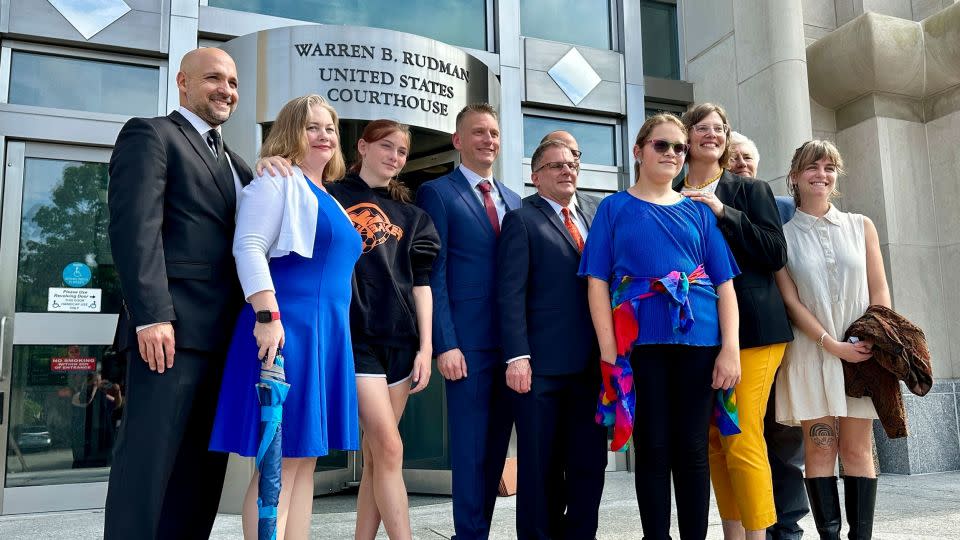The most striking element is the articulation and linguistic clarity of the hosts, organizers, and moderators. They do not engage in Hinglish or Pakistani-English hybrids; instead, they conduct sessions with a level of clarity that rivals professional conference hosts in the States. Their ability to explain Pakistan's startup economy, political economy, climate-health crises, and public-policy frameworks is both astonishing and deeply refreshing.
Whether welcoming senior guests like Miftah Ismail or managing live panels, their professionalism is uniform. This does not look like a student-led inaugural event — it looks like a fully seasoned policy institute operating at Washington standards.
This is a moment of diaspora excellence.
For Pakistan, this is a glimpse of what its intellectual future could be if it embraces its own scattered genius.
What This Means — Expanded
Short-term: A Moment That Actually Matters
Right now, GP3C is proving that Pakistani-American youth are not just participants — they are creators of policy spaces. They have built a forum where health, diplomacy, and development take precedence over politics. And importantly, they've brought voices from Pakistan into a setting where ideas, not ideology, drive the dialogue.
This is difficult to do. They've done it anyway.
Medium-term: A New Direction for U.S.–Pakistan Policy Engagement
If this conclave continues on its current trajectory, it could significantly redirect how Pakistan is understood in Washington. For decades, conversations have been dominated by security framing. GP3C brings in a new lineup: diaspora doctors, climate-policy experts, public diplomacy researchers, economists, and governance reformists.
These groups shape legislation and foreign assistance more than people realize. If GP3C's outputs — research, policy briefs, recorded discussions — circulate into think tanks and congressional offices, the impact will be real. GP3C could quietly become one of the most influential diaspora-driven catalysts in U.S.–Pakistan relations.
Long-term: Building the Bridge Pakistan Has Needed for 30 Years
Here is where GP3C's real potential lies. If institutionalized, the conclave can become a durable bridge between Pakistan's chronic governance vacuum and the diaspora's massive intellectual surplus.
Pakistan has long suffered a brain drain. GP3C may be the first attempt at brain circulation — sending knowledge back where it is needed, without demanding permanent relocation.
If this architecture holds, GP3C could eventually anchor a policy research hub, an annual diaspora-government forum, a reform-driven intellectual pipeline, and an independent advisory platform linked to ministries.
For a country where policymaking is often reactive, this conclave is teaching something rare: how to think long-term. Nothing is guaranteed — but for the first time in a long time, the path is visible.
With an event of this stature the Pakistani youth living in United States have proved a point, the author describes:
The world was built by those without the internet, without instant knowledge—but we are different. We see, we connect, we act faster than history ever allowed. We don’t inherit the future; we create it. We are the bold, wired, unapologetically curious generation who will lead, not follow. If you think Python is a snake, If you can’t differentiate avionics, aviation, and aeronautics, or if you’re unsure of the coordinates of the thermosphere, biosphere, or exosphere; or haven’t realized that STEM is the foundation, not an elective; or you don't know Allan Dulles or Alan Turing in 2025, then you have already retired. Old rules crumble under our vision. The era of passive watching is over. The era of relentless creation has arrived; and it’s ours.
What We Know About GP3C
Origins & Structure
| Category | Details |
|---|---|
| Type | Policy forum / public policy conference |
| Location | Georgetown University, Washington, D.C. |
| Conveners | South Asia Society (Georgetown) & Pak Futures Foundation |
| Event Date | November 15, 2025 |
| Participation | Public, students, scholars, policy professionals |
| Nature | Non-partisan, evidence-driven, diaspora-centered |
Core Focus Areas
| Theme | Description |
|---|---|
| Public Diplomacy | Building transparent, smarter diplomatic engagement |
| Public Health | Climate-adaptive, evidence-based health systems |
| Diaspora Engagement | Integrating 1.2–1.4M Pakistani-American voices into policy |
Notable Speakers
| Name | Role / Affiliation |
|---|---|
| Amb. Rizwan Saeed Sheikh | Ambassador of Pakistan to the U.S. |
| Miftah Ismail | Former Finance Minister |
| Taimur S. Jhagra | Former KP Health & Finance Minister |
| Maleeha Lodhi | Diplomat & former Ambassador |
| Hamid Mir | Journalist |
| Dr. Zulfiqar Bhutta | Global child-health researcher |
| Dr. Adil Najam | Climate expert |
| Judge Zia M. Faruqui | U.S. Magistrate Judge |
Challenges & Risks
- Tokenism vs Substance: Many conferences fail to convert discussion into implementation.
- Funding Influence: As a 501(c)(3), donor priorities must be monitored.
- Representation Gaps: Diaspora ≠ entire Pakistani demographic.
- Follow-through: Real impact depends on post-event deliverables.
Sources & References
- Georgetown Pakistan Public Policy Conclave — About Page
- GP3C — FAQs
- GP3C — Agenda
- GP3C — Speakers
- Eventbrite: GP3C Registration Listing
- Pak Futures Foundation — Organization Background




